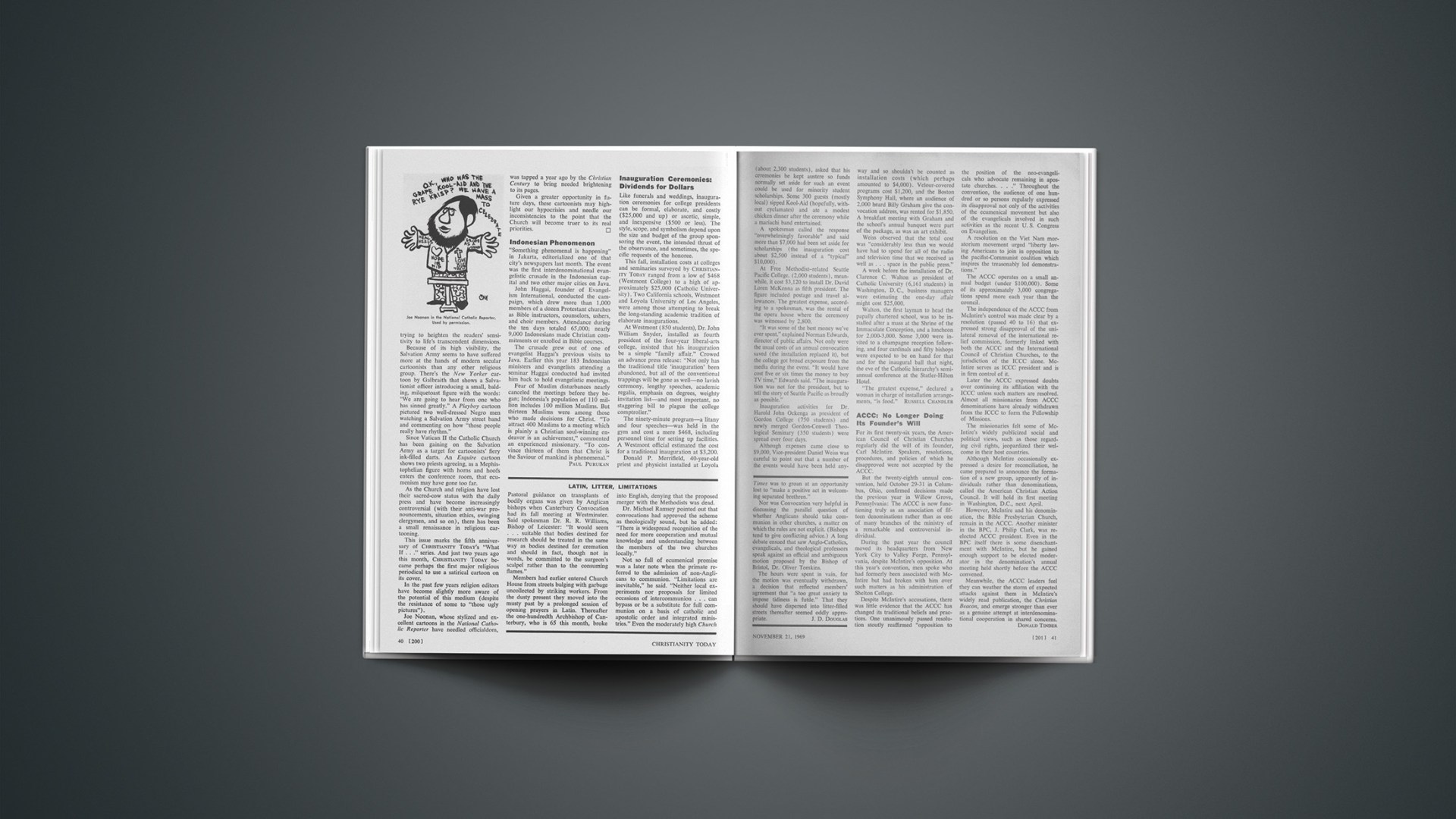Pastoral guidance on transplants of bodily organs was given by Anglican bishops when Canterbury Convocation had its fall meeting at Westminster. Said spokesman Dr. R. R. Williams, Bishop of Leicester: “It would seem … suitable that bodies destined for research should be treated in the same way as bodies destined for cremation and should in fact, though not in words, be committed to the surgeon’s scalpel rather than to the consuming flames.”
Members had earlier entered Church House from streets bulging with garbage uncollected by striking workers. From the dusty present they moved into the musty past by a prolonged session of opening prayers in Latin. Thereafter the one-hundredth Archbishop of Canterbury, who is 65 this month, broke into English, denying that the proposed merger with the Methodists was dead.
Dr. Michael Ramsey pointed out that convocations had approved the scheme as theologically sound, but he added: “There is widespread recognition of the need for more cooperation and mutual knowledge and understanding between the members of the two churches locally.”
Not so full of ecumenical promise was a later note when the primate referred to the admission of non-Anglicans to communion. “Limitations are inevitable,” he said. “Neither local experiments nor proposals for limited occasions of intercommunion … can bypass or be a substitute for full communion on a basis of catholic and apostolic order and integrated ministries.” Even the moderately high Church Times was to groan at an opportunity lost to “make a positive act in welcoming separated brethren.”
Nor was Convocation very helpful in discussing the parallel question of whether Anglicans should take communion in other churches, a matter on which the rules are not explicit. (Bishops tend to give conflicting advice.) A long debate ensued that saw Anglo-Catholics, evangelicals, and theological professors speak against an official and ambiguous motion proposed by the Bishop of Bristol, Dr. Oliver Tomkins.
The hours were spent in vain, for the motion was eventually withdrawn, a decision that reflected members’ agreement that “a too great anxiety to impose tidiness is futile.” That they should have dispersed into litter-filled streets thereafter seemed oddly appropriate.
J. D. DOUGLAS










